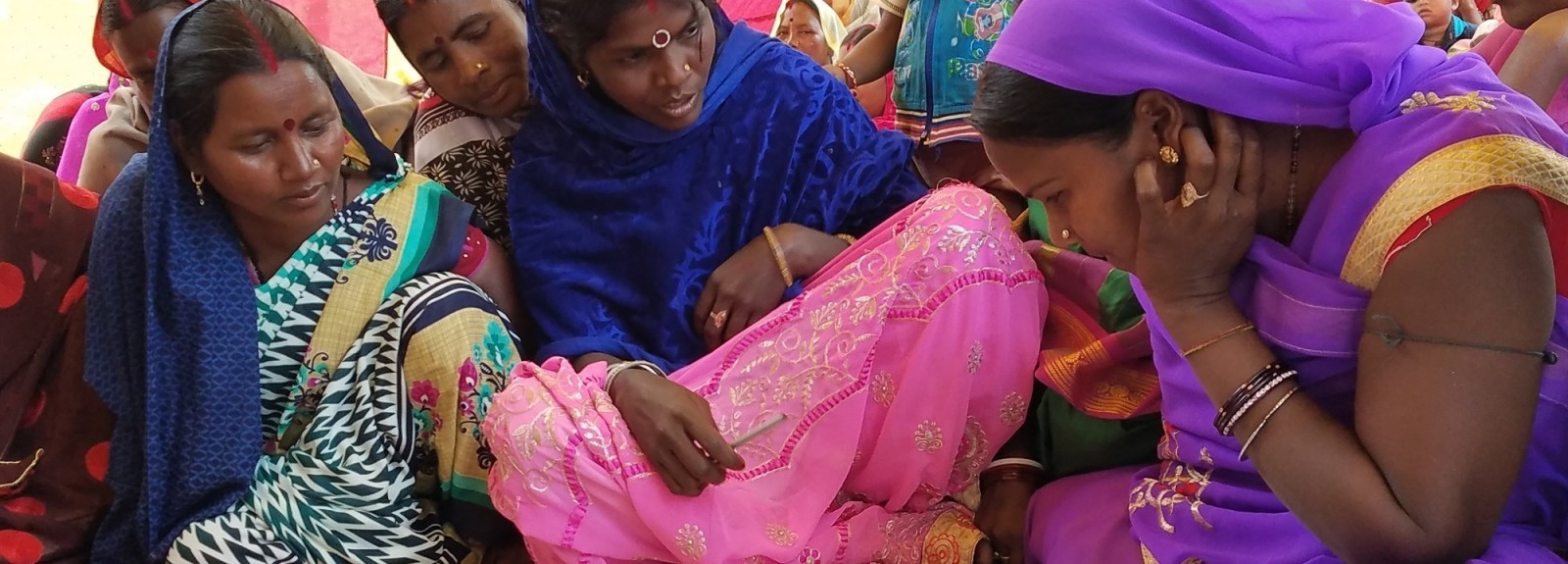Partnership Bihar is directly supported by a group of generous Lutheran congregations. The project is helping rural families in Bihar, India, grow more and better crops, increase household income and empower women to be agents of change.
Women from the village of Maidandih in Bihar, India, walked five miles and then waited eight hours to meet with their block program officer, a local government official.
Their goal was to obtain their government-issued job card, which provides a legal guarantee of 100 days of wage-producing employment every year to every rural adult resident. The job card is supposed to be available to both men and women but distribution has been unreliable.
This inequity is especially prevalent in Bihar, which is India’s poorest state. Families here live at the absolute margins, marked as the lowest class of Indian society. Men are usually not at home for much of the year because they’ve had to migrate to cities to find work, leaving women to care for the household and grow what little food they can.
Limited opportunities
Women are especially marginalized. They often have little if any education and cannot read or write. They bear most of the burden of raising the children while doing the heavy labor of carrying water, weeding, planting, and tending their small plots to grow food despite a baking sun and uncertain rains.
For women, the job card is valuable especially valuable during the lean months, when few crops can be harvested and sold. The job card is part a national job program designed to provide employment for the rural poor by providing at least 100 days of guaranteed wage employment to adults who agree to do unskilled manual work. Although there are problems with uneven distribution, at its best the program increases rural wages and reduces gender wage gaps.Agriculture is responsible for more than half the country’s employment but only a quarter of its GDP, meaning it produces very little income. With women providing a large percentage of the workforce in rural India and much of that work in the agriculture field, it means poverty.
Most of the women in Maidandih had never received a job card, even though the law was passed in 2005. And they never felt empowered to demand their job cards — until now. It began with one group member who was ignored multiple times before she brought her rejection to the group.
Coming together for common good
Through Partnership Bihar, women are empowered to be agents of change and equally contribute to family decisions, especially about finances, division of labor and nutrition. A major part of this work is the establishment of self-help groups, where women join together to support each other, learn better farming techniques and start savings accounts.Through the self-help groups, women are also learning how to advocate for themselves and their families.
Chandrika Devi (pictured above) is the president of the Nima self-help group and one of the members who organized the campaign to get their job cards.
When program officer arrived, he assured Chandrika and her neighbors that he would bring their cards to the village — an assurance the women weren’t willing to accept. He agreed to put the promise in writing. The women left his office only after they had a signed document in hand.
Ten days later, two other officials came to their village with their job cards in hand.
For the women of Maidandih, this is a huge accomplishment and significant step forward in establishing a better future for themselves and their families.



